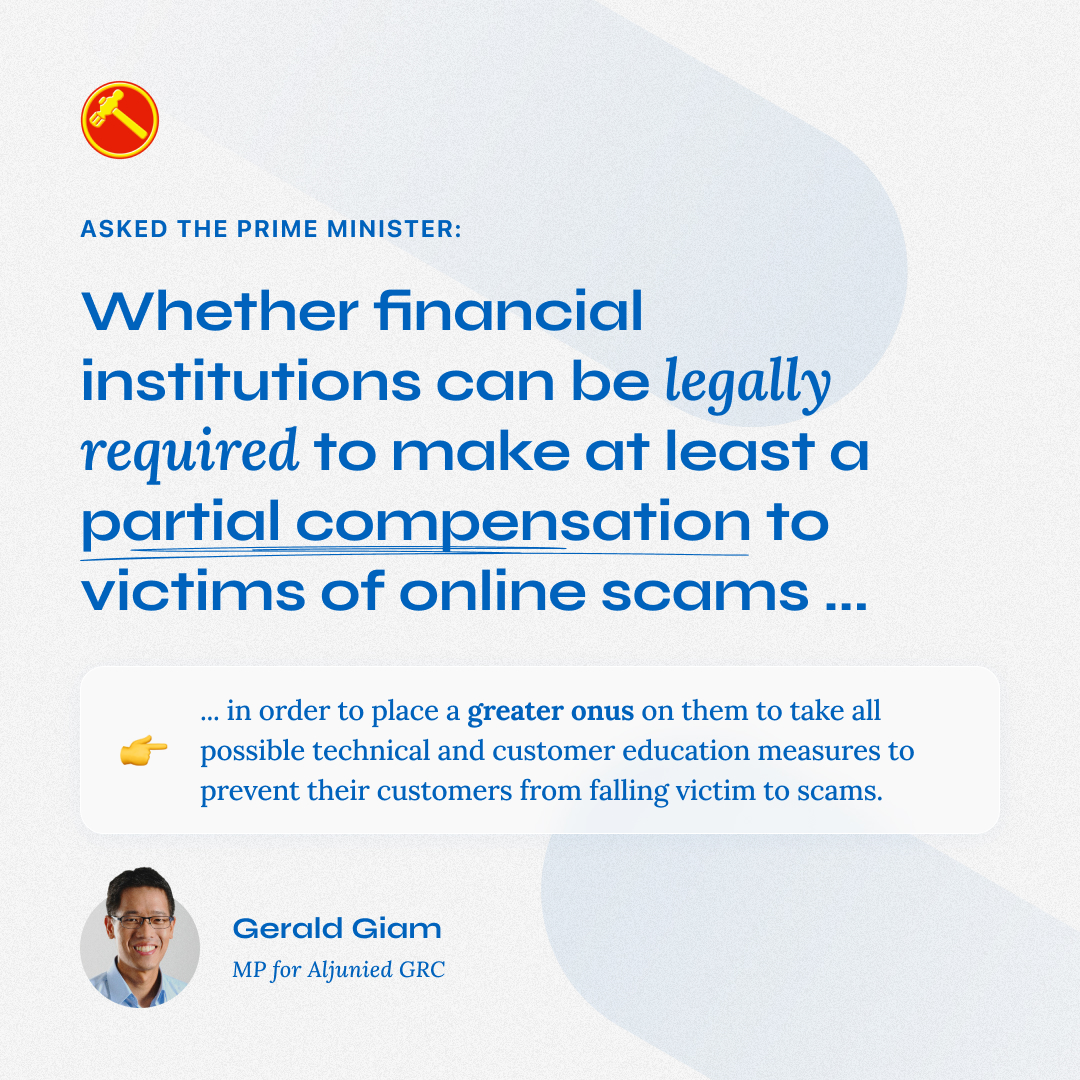I am very concerned about the increasing number and brazenness of online scams in recent years. This has been an ongoing issue since at least 2019. From 2019 to 2020, the total number of scam cases reported increased by 65.1% from 9,545 cases in 2019 to 15,756 cases in 2020, according to the Singapore Police Force (SPF). In the first half of 2021 alone, the total number of reported scam cases was 8,403 cases.
Fighting fraud is a collective effort, and the onus should not be placed so heavily on customers, who may not have all the wherewithal to detect and prevent it.
I have filed some questions in Parliament for the Prime Minister and the Minister for Home Affairs. I asked whether financial institutions can be legally required to compensate victims of online scams in order to place a greater onus on them to take measures to prevent customers from falling victim to scams.
There should be a greater onus on financial institutions to prevent and detect fraudulent transactions. This is especially pertinent as criminals continue to engage new and more sophisticated methods to carry out scams.
This is the full text of my Parliamentary questions:
Mr Gerald Giam Yean Song: To ask the Prime Minister whether financial institutions can be legally required to make at least a partial compensation to victims of online scams in order to place a greater onus on them to take all possible technical and customer education measures to prevent their customers from falling victim to scams.
Mr Gerald Giam Yean Song: To ask the Minister for Home Affairs (a) what proportion of mobile phone users in Singapore are currently using the ScamShield app; (b) to date, what percentage of scam calls and SMSes have been successfully blocked by the app; (c) why is the app not available to Android users; (d) when will the app be available to Android users; and (e) what plans are there to step up public education to encourage residents to install the app.
